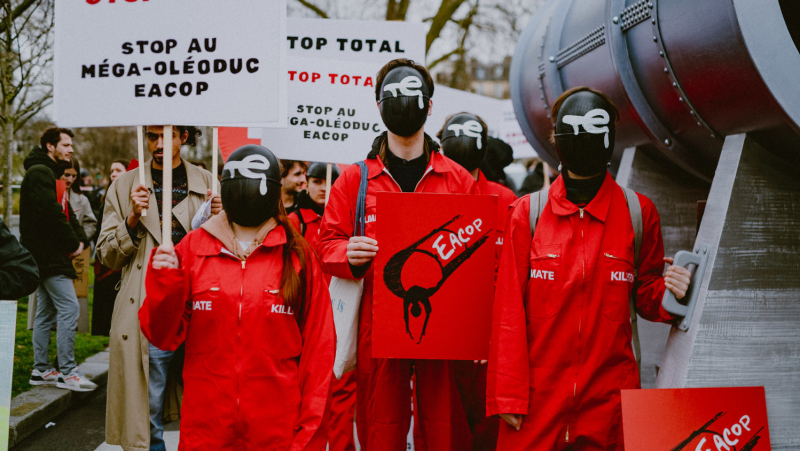CSOs and EACOP-affected people’s network call for withdrawal of Barclays Bank’s research paper on EACOP

Over 42 civil society organisations (CSOs) and a network of aggrieved people in Uganda whose land is being compulsorily acquired for the East African Crude Oil Pipeline (EACOP) project have called on Barclays Bank to withdraw a research paper they say contains falsehoods about the project.
In a letter addressed to the Chief Executive Officer of Barclays Bank, Mr. C.S. Venkatakrishnan, the CSOs and network of EACOP-affected people state that the research paper titled, "On the Road… Reassured in Uganda", does not accurately reflect the many challenges brought on them and their families by the EACOP project. The Barclays Bank research paper is dated 20th March 2023 and was authored by Lydia Rainforth, CFA, Joshua Stone, and Ramachandra Kamath, with additional input from Naisheng Cui, CFA, and Anishaa Pattani from Barclays Bank-UK.
In their letter that was shared with the Barclays Bank CEO today, the network of EACOP-affected people acknowledges that the report pointed out the "local frustration over delays in the disbursement of compensation payments".
The people argue that the delay to compensate them, which is a violation of Article 26 of Uganda's 1995 Constitution, caused a variety of problems for their families. The land use restrictions including stopping the affected people from using their land to grow perennial crops or setting up any new developments also caused financial distress, resulting in increased borrowing by household heads. In effect, the project increased the indebtedness of some affected households.\
Additionally, the network calls out Barclays Bank for stating in the research paper that "the residents we spoke to...indicated that the project itself was welcome - the phrase we heard most often used to describe it was life-changing." The network disputed this assertion, noting that the EACOP project developers led by TotalEnergies are paying them low compensation that does not reflect prevailing market rates for their land and assets such as houses, commercial trees and others. As such, many affected people have been unable to replace the land and other assets lost to the EACOP project. This is not a positive life change, the people said.
They also stated that while the research paper recognized that the project was designed to align with International Finance Corporation standards, it did not mention that there have been many failures in implementing the project as it was designed. According to the people, the EACOP project developers failed to ensure informed participation/consent from many affected households and have failed to adequately support vulnerable households such as female-headed ones and those with mentally-impaired members to offset the impacts of the EACOP displacement.
The people are calling on Barclays Bank to retract its report on the EACOP. On their part, the CSOs, which also wrote to Barclays’ CEO today, criticized the bank for relying on equity researchers without the requisite social, environmental and biodiversity skills needed to assess the EACOP project. The CSOs also noted that though the research team claimed to be independent, its report mainly restates claims made by the EACOP project’s main developer, TotalEnergies. The CSOs are also calling on Barclays Bank to retract the report to avoid reputational and other damages.

